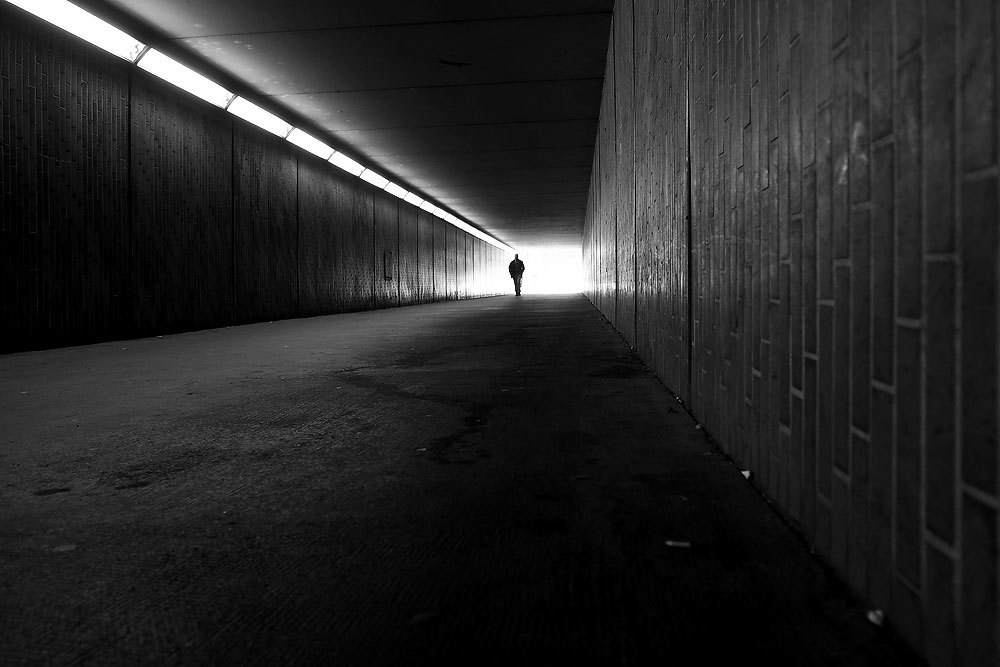One in five of us suffer – or have suffered – at the hands of mental illness. It’s a cold, harsh fact. Depression, anxiety and paranoia destroy lives, and you’d be surprised by how many people are suffering alone, embarrassed and dealing with their issues in secret due to a lack of understanding from the world surrounding them. It can affect anyone and everyone – from your Dad to the bus driver. Sometimes, it can even be the superstar DJs you idolise and listen to religiously, because, you see, mental health is a harsh, self-imprisoning reality – and it can strike at anyone.
Take the case with British dubstep pioneer Benga, who, on 17 September, revealed the extent of his battle with his illness on Twitter. A global superstar who’s been reaping the rewards of his success ever since his seminal album Diary of An Afro Warrior LP tore through the mainstream and underground a decade ago, Benga opened up publicly to suffering with a crippling disease. The result of constant touring, mental strain and drug use – on top of the pressures of being a scene figurehead and having a young family – Benga’s demons had caught up with him and he had been facing his fears alone, whilst simultaneously battling with the daunting stigma that arises from being branded ‘mad’ or ‘fucked up’ by the ignorant and the stupid.
It affects me, too. Depression, anxiety and separation issues have plagued me my whole life, a result of failed relationships, family unit breakdowns and a lifetime of regrettable mistakes as a result of being lost. Unaware of the effects of this – and completely unaware of my condition – it led me to live a life seen through the eyes of a mask. But for whatever the reason, or whatever the catalyst behind such breakdowns, it took a long time to be able to accept my condition and to pluck up enough courage to stand proud and discuss my issues with those around me.
With that in mind, I can’t begin to imagine what effect a life on the road — grinding through tour dates, never feeling settled in any one place, no time to seek treatment and remaining distant from loved ones – would have had on me. Benga Adejumo stood proud, confident and tall when his first Tweet (albeit out of the blue to most) declared:
“Who wants to do my lead interview on my mental health issue I would like to get this heard now. I’m asked so much about my retirement.”. After a short pause on the feed, Benga continued in his next Tweet: “I might as well explain it on here. My bipolar was brought on by drugs and the schizophrenia was the result of excessive touring.”
“If you know someone that suffers from mental health issues you’ll understand how alone you feel until it’s recognised. Many people suffer,” he went on, nailing the issue with poignant force.
“Just been made feel completely overwhelmed with emotion…. .@iambenga I salute you brother and feel ridiculously proud of you….x” came a tweet from friend and partner in crime Skream, which undoubtedly reaffirmed the positives of Benga’s bold and brave admissions. We don’t lobotomise people in mental asylums anymore, and we may stigmatise people less, but we’ve not come far enough and need to go further.
Benga joins other, much more high profile entertainers such as Stephen Fry, Professor Green, Jo Brand and Ruby Wax in their outspoken attitude towards mental illness. They use their influence and celebrity to bring on a change in opinion and an awareness of the subject’s frailty. Knowledge is power; furthermore, knowledge over your own mind is the most powerful tool that you could be in possession of.
Confidence and self-empowerment are even more critical when you consider that the system, sadly, doesn’t help us all. Consider the abhorrent news released last week regarding a man who, upon learning that he was having his disability allowance cruelly taken away, after long being classed too mentally ill to work, took his own life; it only serves to hammer home the need for acceptance and understanding. Had he not felt rejected, hopeless and alone in a world in which he struggled to cope with, he may have been saved.
To avoid more tragic and painful losses (there are many similar cases out there), the system needs to be more understanding and compassionate of those that live within its confines. This should start with those at the top of the chain, pulling the strings. You don’t have to be embarrassed of being ‘unwell’ because somewhere out there help and perspective is at hand. The stigma can be broken if we all shift our attitudes and offer support to one another. In the words of one Benga fan on Twitter: “It’s something everyone looks at in such a negative way. People need to feel understood and confident to ask for help!”
It may not be the coolest thing to do, to admit mental health issues. But learning to recognise it and control it, while feeling confident that people around you will listen is a big step towards destroying it in its tracks. That’s probably one of the coolest and most admirable things you could ever do. Not just for yourself, but for other silent sufferers everywhere.
Those that suffer need to be making noise – and the more that do, the more strength we have in numbers. Big up to Benga for speaking out and offering a hand to thousands of like-minded people.
For help, advice or information, either for yourself a family member or friend, contact Mind
Credits
Text Joe Gamp
Photography via
